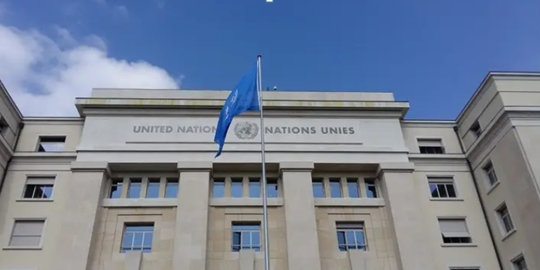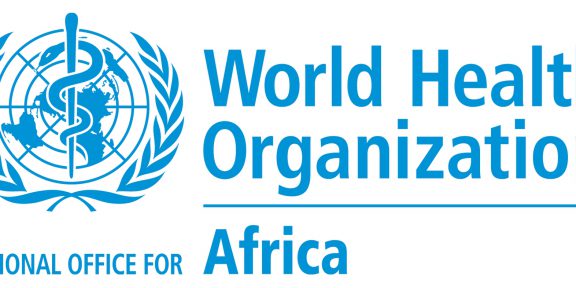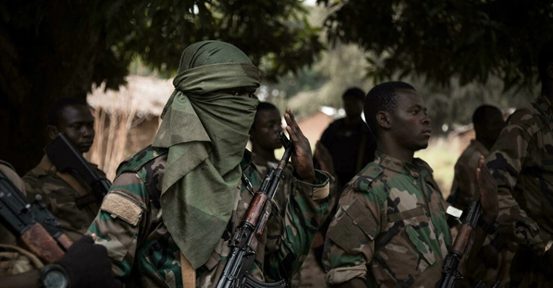Historically organized groups and movements have been actively involved in the social and political life of post-colonial Africa. The process of decolonization depended on the level of organization of the emerging national forces, and often their cohesion was based on the presence of a common enemy and a common goal. Common enemies or goals are necessary in the formation of any new collective identity.
In French Africa, during the period of independence, the process of decolonization was also accompanied by the emergence of movements and groups with anti-French rhetoric, addressing the responsibility of France for the socio-economic situation and political instability in its colonies. In different periods after the colonial era, groups had different influences and were marginal, but often some formations became a powerful political force during political crises in African countries. Thus, in 1954, the National Liberation Front became a key organization in the Algerian war of independence, and the African Democratic Union (RDA), an inter-territorial movement of political parties and groups in the French-speaking countries of West and Central Africa, decisively influenced the results of the referendum in Guinea in 1956 on the final separation from France.
After almost 70 years, various political entities: groups, movements, public organizations still continue to influence political life in African countries, and this influence will only increase with further destabilization in a number of countries in West and Central Africa. France is also involved in the processes of destabilization in one way or another.
No group exists without goals, resources, associates and identity. The organization involves people in its activities, appealing to certain real problems and deprivations of people. This explains the growing number of radical Islamist groups in Africa. Despite the different nature of politically organized groups, the difference in the methods used to achieve goals and support among different categories of the population, they can all be united by a common rhetoric. There is such a thing in the countries of West and Central Africa – and this is anti-French rhetoric. The colonial period created many problems for the modern African countries of the region, thereby creating conditions and opportunities for the growth of religious, ethnic, economic and socio-economic politicized public entities operating in all former French colonies with varying degrees of anti-French rhetoric. Each of these entities aims to neutralize one or another negative effect caused by the presence of France in the region.
In 2018, the movement “France Degage” (France Go Away) emerged, a large mass movement aimed at rejecting the CFA franc[1]. One of the leaders of the movement against the CFA franc, Kemi Seba, claims that France uses the currency to undermine national sovereignty, controlling the finances of countries and thereby possessing a tool for manipulation[2]. Seba’s movement has a pronounced anti-colonial character, thousands of followers have joined it in connection with the plight of the economies of the countries of the region. The movement has become cross-border, which gives a cumulative effect from its activities. The front against CFA covers Burkina Faso, Mali, Niger, Benin, Cameroon and Senegal. By the way, Seba was expelled from Senegal because of the burning of 5,000 CFA francs. This economic association against France reflects the general trend in the public life of the countries of West and Central Africa, where economic problems are associated with the actions of France in the past and present. There are also movements in France against France’s neo-colonial economic policy towards African countries. Members of the Chadian diaspora have united in the organization “Gilets noirs”, which opposes the exploitation of illegal African migrants in France[3]. Meanwhile, there are more and more anti-French protests (caused by economic reasons) in the countries of Africa themselves, they are beginning to be institutionalized.
The extremely difficult economic situation in the countries of Central Africa leads to an increase in social tension, the emergence and activation of various political groups. Their supporters are young people, many of whom seek to actively form their political views and articulate their interests. Given the demographic trends in the region, the natural population growth will continue, which means that there will be more young people – this is an important political resource and a huge potential that can be realized by new political groups with anti-French rhetoric. Back in the 2000s, the organization “Young Patriots” had a significant impact on the political life of Ivory Coast[4]. In 2019, young people played a crucial role in demonstrations against France in Mali, Burkina Faso and Niger. The participants demanded to ensure the sovereignty of the countries[5]. In 2021, young people took part in an anti-French demonstration organized by the marginal political force “Yerewolo Debouts sur les remparts” in Bamako[6]. No less pronounced was the support of the youth of the movement for the liberation of the opposition leader Ousmane Sonko in Senegal[7]. However, some young people are ready to support more radical groups such as Islamist groups.
Islamist groups in West and Central Africa are not purely anti-French in nature, but France’s actions in the region lead to the constant emergence of new groups and the activation of old ones, the influx of new people into radical jihadist movements. The number of Islamist groups in the Sahel region is huge, and some have impressive macro-regional ambitions. Among them: “Boko Haram”, ISWAP (Islamic State of West Africa), “Al-Qaeda in the Islamic Maghreb” (AQIM), “Movement for Oneness and Jihad in West Africa” (MOJWA), “Seleka”, “Group for the Support of Islam and Muslims” (Jama’a Nusrat ul-Islam wa al-Muslimin, JNIM), “Salafist Group for Preaching and Combat” (GSPC), “The Supporters of the Religion Front” (Ansar al-Din, AD) and others. The strengthening of these groups will have various negative consequences for the region. Numerous military operations with the participation of France did not completely solve the problem of radical Islamism, which only increased anti-French sentiments among the population of Central African countries and strengthened their potential support for anti-French movements. In addition, it should be noted that Islamist groups are directly associated with ethnic groups living in the Sahel. Some of them are monoethnic in nature (for example, AD, others are polyethnic (for example, AQIM[8]). Due to the insurgency of the Tuareg and other ethnic groups in the Sahel and other, thanks to local governments and former metropolitan areas, radical Islamists have received a favorable environment for their development.
The last important category of anti-French movements includes ethnic-based formations. In the post-colonial era, the ethnic factor played no less important and contradictory role in the nation-building in Africa than religion. It is enough to recall the tragic events in Rwanda, for which Emmanuel Macron was forced to repent before the people of this country this summer[9]. Ethnicity allows you to integrate a specific group and at the same time disintegrate the poly-ethnic environment itself. This is also the case with anti-French ethnic movements in Central and West Africa. The “National Liberation Front of Azawad” (Front de libération nationale de l’Azawad; FLNA) consists of Arabs and opposes the Tuareg “National Movement for the Liberation of Azawad” (Mouvement national de libération de l’Azawad, MNLA) [10]. Ethnic formations are often well consolidated and constantly refer to the collective memory – the colonial period when building relations with various actors. In particular, anti-French sentiments are extremely strong among the Tuaregs.
In addition, anti-French movements can be expanded in the near future due to the active involvement of other public organizations in anti – French rhetoric-trade unions and civil associations. Trade unions and civil society institutions are quite a powerful political resource that can influence the political situation in times of crisis. For example, in Guinea, there is a National Council for Civil Society Organizations, a civil society coalition called the Civil Alliance, as well as a coalition of two of the largest trade unions in Guinea – The National Confederation of Guinean Workers (Confédération Nationale des Travailleurs de Guinée, CNTG) and the United Trade Union of Guinean Workers (Union syndicale des travailleurs de Guinée, USTG) [11]. These organizations can influence the further development of the situation in the country. The expansion of the discourse towards an anti-French orientation is not only possible, but should also be predicted. There are already some precedents: the Algerian authorities were afraid in the spring of 2021 that the trade unions that organized the protests could fall under the influence of “subversive forces”[12].
Thus, we can conclude that anti-French rhetoric in the activities of various political and public organizations has prospects for further development. Anti-French demonstrations in Mali, Senegal and other countries will continue and may intensify. Many prerequisites have been formed to strengthen these speeches. They include the socio-economic problems of the countries of Central and West Africa, the actualization of collective memory (problems of colonial heritage), ethnic contradictions, demographic growth and the failures of the French policy to stabilize the region. All this in one way or another, directly or indirectly, affects the popularity of France among the inhabitants of the countries of Central and West Africa. The speeches in Mali and Senegal are only a prologue to a broad anti-French movement in Africa.
[1] https://www.aljazeera.com/news/2021/3/12/senegal-anti-french-sentiments-on-the-rise-amid-ongoing-protests
[2] https://qz.com/africa/1781660/france-the-end-of-west-africas-cfa-kemi-seba-and-eco/
[3] https://www.theguardian.com/commentisfree/2020/feb/20/france-soldiers-sahel-emmanuel-macron-protest
[4] https://archive.md/20090409084033/http://www.cojep.info/
[5] https://www.inafran.ru/node/2202
[6] https://www.africanews.com/2021/06/26/mali-protesters-call-for-french-troops-to-leave-some-call-for-greater-russia-cooperation/
[7] https://www.aljazeera.com/news/2021/3/12/senegal-anti-french-sentiments-on-the-rise-amid-ongoing-protests
[8] https://interaffairs.ru/jauthor/material/848
[9] https://ria.ru/20210527/frantsiya-1734410657.html
[10] https://interaffairs.ru/jauthor/material/848
[11] https://www.nonviolent-conflict.org/guinea-1958-present/
[12] https://www.africanews.com/2021/05/07/algeria-s-government-warns-trade-unions-against-subversive-groups/







